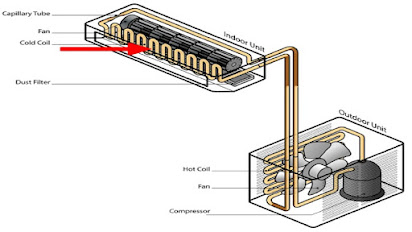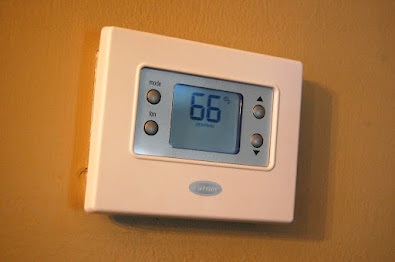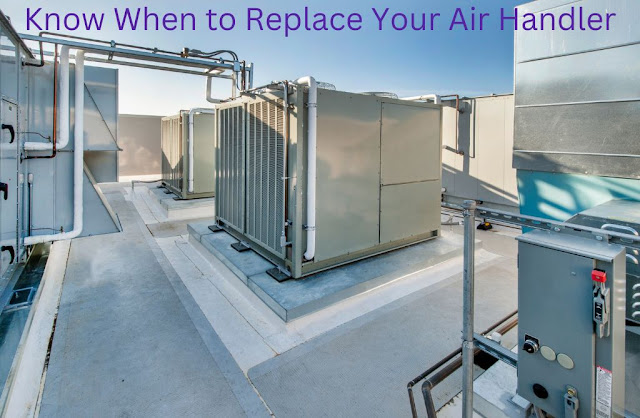AC is cooling but not removing humidity: what could be the problem?
AC is cooling but not removing humidity: what could be the problem?
Humidity is a big issue in the summertime. People are often concerned about AC units because they think they're not removing humidity well enough. However, another problem might be preventing the AC unit from doing its job.
why AC may not be removing humidity effectively
A common problem with air conditioning is not removing humidity adequately. As a result, it can lead to issues such as condensation, damage to equipment, and decreased energy efficiency. There are a number of potential reasons why AC may not be removing humidity effectively, including improper installation, a lack of filters or maintenance, and incorrect insulation levels.
If you're experiencing any of these symptoms, it may be time to investigate your AC's performance and make necessary repairs or adjustments.
check your installation
If you're AC is not removing humidity, there may be a problem with your installation. Follow these tips to determine if your AC is cooling but not removing moisture:
Check the air filter
A dirty air filter can cause your AC to work less effectively and increase humidity levels in the home. Replacing the air filter regularly can help maintain proper cooling and remove odors and pollutants from the air.
Check the ductwork
If your AC is not removing humidity, it may be because there is a blockage in the ductwork between the unit and the room or area it's supposed to cool. Check for cracks or tears in the ductwork and any obstructions or debris that may be blocking airflow. Call an expert to clean and replace any ductwork that needs repair.
The ductwork and filters are clogged with debris or pollen. It can block airflow and reduce the efficiency of the AC unit. In order to determine if this is the case, you'll need to take apart your entire duct system and clean it out.
The air conditioner is not powerful enough to cool your home. You'll need a unit of at least 3 tons in capacity to achieve optimal cooling results. In addition, less powerful units may be unable to cool your home effectively in hot weather conditions.
Your air conditioning system is likely cooling your home but not removing moisture, which could be causing problems.
Your AC unit isn't cold enough:
If your air conditioning unit provides inadequate cooling, it may not be able to remove moisture from the air. To test this, turn up the thermostat on your AC unit until it feels cold, then open a window or door to see how much moisture is in the room. If there's a lot of moisture present, your AC unit isn't powerful enough, and you'll need to upgrade or replace it.
Your vents aren't clearing the heat
Vents on your home's AC unit are not clearing the heat or humidity, resulting in a decrease in air conditioning efficiency. The combination of hot air and humidity can cause your AC unit to work harder than necessary, using more energy and costing you money. Check if your vents are blocked by curtains, plants, furniture, or other objects. If they are, move these items out of the way and open the vents to allow better airflow. Additionally, install a dehumidifier in an area of your home that is often damp, like the basement. This will help reduce the air's moisture and improve AC efficiency.
Check Your Thermostat
Acreage Home Solutions is here to help you check your thermostat. The problem may be with the thermostat if AC is cooling but not removing humidity. To troubleshoot and fix this issue, please follow these steps:
- Check if the thermostat is set to the correct temperature.
- Try changing the setting from "AC" to "Heat."
- If that doesn't work, try changing it to "Auto."
- If that still doesn't work, contact Acreage Home Solutions for further assistance.
Check if the air conditioning unit is in line with the windows
One way to determine if your air conditioning unit is in line with the windows is to open all the windows and check to see if the AC unit can cool the entire room. The AC unit may not align with the windows if it can't. The AC unit should also remove humidity from the air. If it doesn't, you may need to replace the AC unit or install a new one.
Make sure there isn't a blockage in any ducts leading to the AC unit
If you're having trouble with your air conditioning unit cooling but not removing humidity, there may be a blockage in one of the ducts leading to it. First, try checking the filters and see if they're clean. Then, if the problem persists, have a qualified technician inspect the AC unit.
Check for leaks around fittings and valves on the unit
An AC unit may function correctly but not remove humidity due to leaks around fittings and valves. To check for leaks, first, identify the areas of concern. Next, look for water droplets or moisture on surfaces where it shouldn't be. Finally, if you find any leaks, fix them as soon as possible to avoid further condensation and malfunctioning of the AC unit.
Test the blower motor
If the AC unit is not removing humidity from the air, it may be because the blower motor is not working. The following steps can help to test the blower motor:
Remove the cover on the AC unit
Check for power to the blower motor by testing with an ohmmeter or multimeter between black and white wires coming out of the motor (if there is no power, replace the battery). If there is power, replace any burnt-out components in the motor.
To test if AC is cooling but not removing humidity, turn off all appliances in the house except for one and check to see how long it takes for relative humidity levels in the room to reach 60%.
How long does it take for a humidifier to work?
Humidifiers work by releasing water vapor into the air to create a moist environment. It can take 24 hours for a humidifier to fully humidify a room. Keep in mind that the longer your humidifier starts working, the more water it will need to fill the tank. If your humidifier doesn't seem to be working, ensure you have installed it correctly and that the water reservoir is full.
Where to place the humidifier?
When choosing where to place your humidifier, remember the room you plan to humidify and the types of air it contains.
Room Size: A room's size is one consideration when selecting a humidifier. If you have a small space, opt for a handheld model. Larger rooms can accommodate an ultrasonic or forced-air unit.
Air Type: The air in your room affects the type of humidifier you should buy. Dry air contains less moisture than moist air, so a forced-air unit is best for dry rooms. Ultrasonic units work well in both dry and moist environments.
Removing Moisture: Humidifiers remove moisture from the air by releasing water vapor. If your room does not contain any mold or other contaminants, you do not need to add anything to the water tank except distilled water (which evaporates).
In conclusion, air conditioning is cooling but not removing humidity. The problem could be as simple as a leaky roof or a broken condenser. If you are experiencing excessive humidity in your home, it may be time to call a professional to check the situation.




Comments
Post a Comment